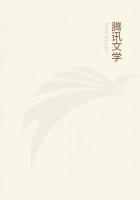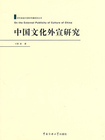Our exploration of the Lake extended from the 2nd September to the 27th October, 1861; and, having expended or lost most of the goods we had brought, it was necessary to go back to the ship.When near the southern end, on our return, we were told that a very large slave-party had just crossed to the eastern side.We heard the fire of three guns in the evening, and judged by the report that they must be at least six-pounders.They were said to belong to an Ajawa chief named Mukata.
In descending the Shire, we found concealed in the broad belt of papyrus round the lakelet Pamalombe, into which the river expands, a number of Manganja families who had been driven from their homes by the Ajawa raids.So thickly did the papyrus grow, that when beat down it supported their small temporary huts, though when they walked from one hut to another, it heaved and bent beneath their feet as thin ice does at home.
A dense and impenetrable forest of the papyrus was left standing between them and the land, and no one passing by on the same side would ever have suspected that human beings lived there.They came to this spot from the south by means of their canoes, which enabled them to obtain a living from the fine fish which abound in the lakelet.They had a large quantity of excellent salt sewed up in bark, some of which we bought, our own having run out.We anchored for the night off their floating camp, and were visited by myriads of mosquitoes.Some of the natives show a love of country quite surprising.We saw fugitives on the mountains, in the north of the lake, who were persisting in clinging to the haunts of their boyhood and youth, in spite of starvation and the continual danger of being put to death by the Mazitu.
A few miles below the lakelet is the last of the great slave-crossings.Since the Ajawa invasion the villages on the left bank had been abandoned, and the people, as we saw in our ascent, were living on the right or western bank.
As we were resting for a few minutes opposite the valuable fishery at Movunguti, a young effeminate-looking man from some sea-coast tribe came in great state to have a look at us.He walked under a large umbrella, and was followed by five handsome damsels gaily dressed and adorned with a view to attract purchasers.One was carrying his pipe for smoking bang, here called "chamba;" another his bow and arrows; a third his battle-axe; a fourth one of his robes; while the last was ready to take his umbrella when he felt tired.This show of his merchandise was to excite the cupidity of any chief who had ivory, and may be called the lawful way of carrying on the slave-trade.
What proportion it bears to the other ways in which we have seen this traffic pursued, we never found means of forming a judgment.He sat and looked at us for a few minutes, the young ladies kneeling behind him; and having satisfied himself that we were not likely to be customers, he departed.
On our first trip we met, at the landing opposite this place, a middle-aged woman of considerable intelligence, and possessing more knowledge of the country than any of the men.Our first definite information about Lake Nyassa was obtained from her.Seeing us taking notes, she remarked that she had been to the sea, and had there seen white men writing.She had seen camels also, probably among the Arabs.She was the only Manganja woman we ever met who was ashamed of wearing the "pelele," or lip-ring.She retired to her hut, took it out, and kept her hand before her mouth to hide the hideous hole in the lip while conversing with us.All the villagers respected her, and even the headmen took a secondary place in her presence.On inquiring for her now, we found that she was dead.We never obtained sufficient materials to estimate the relative mortality of the highlands and lowlands; but, from many very old white-headed blacks having been seen on the highlands, we think it probable that even native races are longer lived the higher their dwelling-places are.
We landed below at Mikena's and took observations for longitude, to verify those taken two years before.The village was deserted, Mikena and his people having fled to the other side of the river.Afew had come across this morning to work in their old gardens.After completing the observations we had breakfast; and, as the last of the things were being carried into the boat, a Manganja man came running down to his canoe, crying out, "The Ajawa have just killed my comrade!"We shoved off, and in two minutes the advanced guard of a large marauding party were standing with their muskets on the spot where we had taken breakfast.They were evidently surprised at seeing us there, and halted; as did also the main body of perhaps a thousand men."Kill them," cried the Manganja; "they are going up to the hills to kill the English," meaning the missionaries we had left at Magomero.But having no prospect of friendly communication with them, nor confidence in Manganja's testimony, we proceeded down the river; leaving the Ajawa sitting under a large baobab, and the Manganja cursing them most energetically across the river.
On our way up, we had seen that the people of Zimika had taken refuge on a long island in the Shire, where they had placed stores of grain to prevent it falling into the hands of the Ajawa; supposing afterwards that the invasion and war were past, they had removed back again to the mainland on the east, and were living in fancied security.On approaching the chief's village, which was built in the midst of a beautiful grove of lofty wild-fig and palm trees, sounds of revelry fell upon our ears.The people were having a merry time--drumming, dancing, and drinking beer--while a powerful enemy was close at hand, bringing death or slavery to every one in the village.
One of our men called out to several who came to the bank to look at us, that the Ajawa were coming and were even now at Mikena's village;
But they were dazed with drinking, and took no notice of the warning.
Crowds of carriers offered their services after we left the river.















